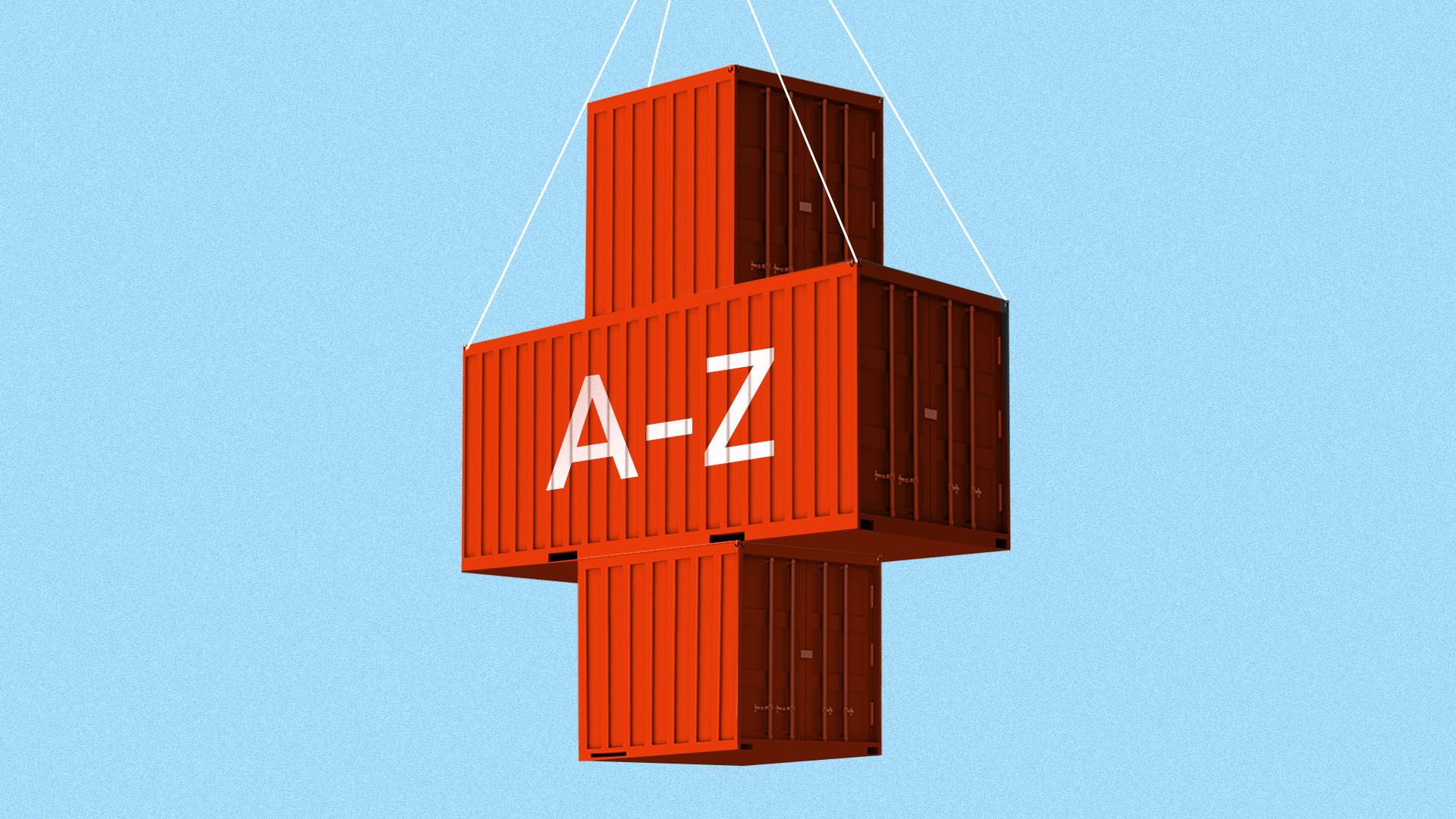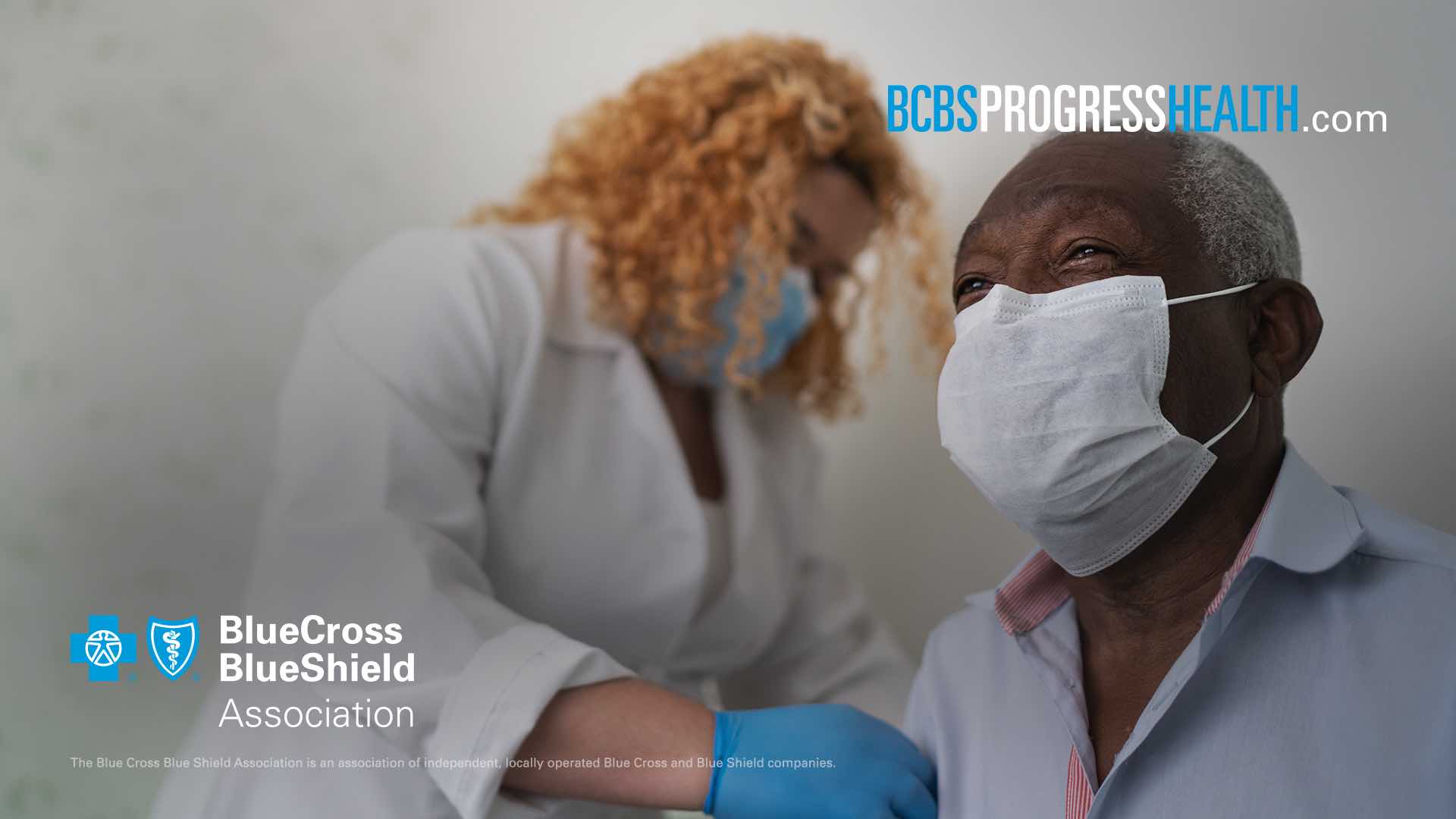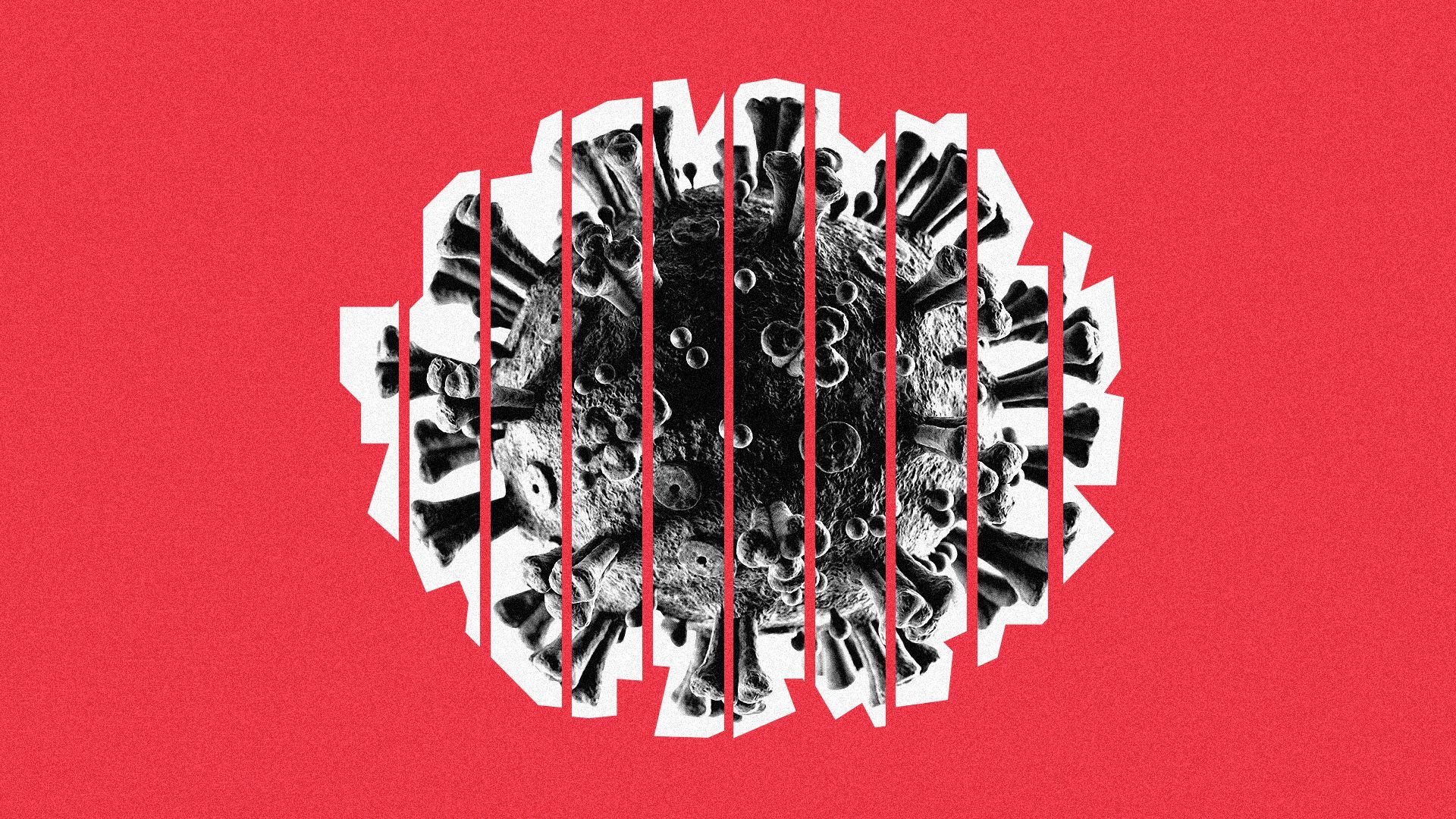| | | | | | | Presented By Blue Cross Blue Shield Association | | | | Vitals | | By Caitlin Owens ·Mar 23, 2021 | | Good morning. Join Axios' Sam Baker and Bryan Walsh tomorrow at 12:30pm ET for a virtual event on COVID-19 testing, featuring Harvard T.H. Chan School of Public Health associate professor of epidemiology Michael Mina, Johns Hopkins Center for Health Security senior scholar Jennifer Nuzzo, and University of Minnesota Center for Infectious Disease Research and Policy director Michael Osterholm. Situational awareness: The NIAID this morning said it's "concerned" that AstraZeneca "may have included outdated information" from a trial of its COVID-19 vaccine that "may have provided an incomplete view of the efficacy data." Today's word count is 943, or a 4-minute read. | | | | | | 1 big thing: The U.S. may not need AstraZeneca's vaccine |  | | | Illustration: Sarah Grillo/Axios | | | | Public health experts are divided over whether the U.S. should add AstraZeneca's coronavirus vaccine to its arsenal, or let the rest of the world have it. Why it matters: By the time the AstraZeneca vaccine is authorized for distribution, the U.S. may already have more than enough supply. Meanwhile, most of the world is still waiting for shots. What we're watching: It will take another month or so for the AstraZeneca vaccine to be available for use in the U.S., following the company's announcement yesterday that the two-dose regimen was 79% effective at preventing symptomatic illness. - "The gap between supply and demand is closing considerably, and I think by the time we get to May, that gap will be closed," NIAID director Anthony Fauci said.
- "At most, you'll get a small percentage of Americans vaccinated with AstraZeneca, and it won't speed up vaccinations, because by May, supply will not be the constraint," said Ashish Jha, the dean of public health at Brown University.
The other side: Angela Rasmussen, a virologist with Georgetown's Center for Global Health Science and Security, said she thinks the AstraZeneca vaccine will be useful in rural parts of the country where cold storage is a challenge. The big picture: Monday's announcement is good news for the rest of the world, which is relying heavily on the AstraZeneca vaccine. - Previous clinical trial data has been messy, and confidence in the vaccine may have been eroded recently by unsubstantiated concerns that it causes blood clots.
- The higher-than-expected efficacy avoids a "two tiered system," Jha said, in which less developed countries would receive a mediocre vaccine.
- And a stamp of approval from the Food and Drug Administration could help rebuild global trust in the vaccine.
Go deeper: Biden's next challenge: Vaccine diplomacy |     | | | | | | 2. America reemerges |  Data: Axios/Ipsos Poll; Chart: Andrew Witherspoon/Axios With each shot in the arm, more and more Americans are letting down their guard — seeing family and friends outside the home again, venturing out to eat or relaxing social distancing precautions, according to the latest installment of the Axios/Ipsos Coronavirus Index. The big picture: Nine in 10 respondents said they know someone who's already been vaccinated, and 36% said they've been vaccinated themselves. Meanwhile, the share who know someone who died from COVID-19 has leveled off at around one in three, after climbing through 2020, Axios' Margaret Talev reports. What they're saying: "These are glimmers of hope," said Cliff Young, president of Ipsos U.S. Public Affairs. "We're seeing basically the reemerging of America." But, but, but: It's the unvaccinated in some cases who are returning to activities outside the home at the highest rates. - 52% of unvaccinated Americans reported seeing friends and relatives outside the home in the past week, compared with just 41% of those who'd been vaccinated.
- The share of Americans saying they are "not at all" likely to take the vaccine remained steady at around one in five.
- Their reasons included not trusting the vaccine or in some cases not trusting the government; wanting more information about side effects; or thinking they don't need it because they feel healthy now or already got the virus.
Go deeper. |     | | | | | | 3. Spring break travel worries health officials |  | | | Illustration: Brendan Lynch/Axios | | | | Experts and health officials fear that spring break travelers could touch off new coronavirus outbreaks after they return home, Axios' Marisa Fernandez reports. Driving the news: Air travel hit its peak for the year so far on Sunday, and local news reports have shown spring breakers crowding beaches and streets in Miami and South Texas. Between the lines: The risk of transmission is lower in outdoor settings like beaches. But crowded bars and restaurants, along with travel, could pose a risk of new infections, especially in places — like Florida — where more contagious variants of the coronavirus have a strong foothold. What they're saying: "We are worried not just for what happens when you are on the airplane itself but what happens when people travel. They go out, they mix, they mix with people who are not vaccinated," Centers for Disease Control and Prevention director Rochelle Walensky said in a press conference Monday. |     | | | | | | A message from Blue Cross Blue Shield Association | | Using data to build vaccine confidence | | |  | | | | Reluctance about vaccines is higher in communities of color due to a long history of inequitable health treatment. Learn how we are using Blue Cross and Blue Shield data to identify social vulnerabilities and replace hesitancy with hope. | | | | | | 4. Getting Sputnik off the ground | | The supply shortfalls in Europe have led to a debate over another somewhat controversial vaccine: Russia's Sputnik V, Axios' Dave Lawler reports. Why it matters: The latest data suggests the vaccine is safe and highly effective, and Russia wants to sell it all over the world — particularly within the EU. Several member states want to buy it, and some are prepared to help produce it. - German Chancellor Angela Merkel said she'd be willing to go it alone to order Sputnik V if approved by regulators even if there was no common European decision on using it.
The big picture: Having an effective state-funded vaccine could be a diplomatic coup for Moscow, but Russia lags behind the other major players in terms of manufacturing capacity and so is working to cut production deals around the world. What they're saying: "We have absolutely no need of Sputnik V," Thierry Breton, the head of the EU's vaccine task force said on Sunday. - He argued that the bloc was on pace to have sufficient capacity by the end of June using EU-made vaccines — likely long before enough Sputnik V would be available to make a meaningful difference.
The other side: The vaccine's developers called Breton "clearly biased against the Sputnik V vaccine just because it is Russian," adding, "Biases lead to failures. And Breton's failures are clear to many people in EU." |     | | | | | | 5. Catch up quick |  | | | Illustration: Aïda Amer/Axios | | | | Walensky said Monday she's concerned the U.S. could experience "another avoidable surge" in coronavirus infections due to new variants, if people don't follow mitigation measures like mask-wearing and social distancing. Krispy Kreme on Monday announced that it's launching a year-long promotion to give a free doughnut to anyone who's received a COVID-19 vaccine. DoorDash has launched a new initiative to provide same-day on-demand delivery of FDA authorized COVID-19 test collection kits, it announced in a statement Monday. Airlines and other travel-related industries are urging the Biden administration to develop a plan by May 1 to reopen the country to international visitors. |     | | | | | | A message from Blue Cross Blue Shield Association | | Improving coverage, cost and equity | | |  | | | | Expanding and enhancing the Affordable Care Act will help cover everyone and make healthcare more equitable. To achieve universal coverage, we must: - Close the low-income coverage gap.
- Adjust tax credits.
- Boost enrollment and outreach.
See how. | | | | | | Axios thanks our partners for supporting our newsletters.
Sponsorship has no influence on editorial content. Axios, 3100 Clarendon Blvd, Suite 1300, Arlington VA 22201 | | | You received this email because you signed up for newsletters from Axios.
Change your preferences or unsubscribe here. | | | Was this email forwarded to you?
Sign up now to get Axios in your inbox. | | | | Follow Axios on social media:    | | | | | |








No comments:
Post a Comment